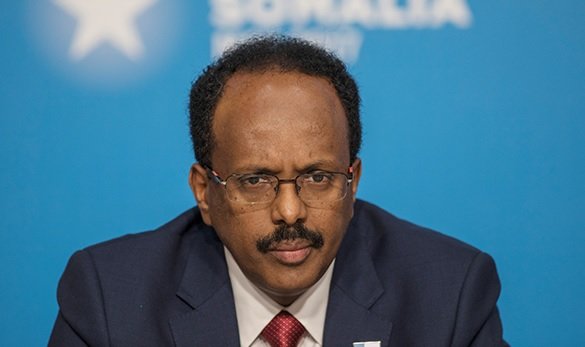SOMALIA’S GOVERNMENT MISPLAYED ITS HAND AT A CONFERENCE IN LONDON
By Michael Rubin, AEI
Somalia’s government misplayed its hand when, at a February 7 conference in London, it allegedly auctioned off oil and gas blocks in waters Somalia and Kenya dispute prior to an International Court of Justice’s decision on the maritime boundary. Perhaps President Mohamed Abdullahi Mohamed—commonly known as Farmajo–believed his gamble wise: he could raise revenue in the hope that the disputed waters contained energy deposits and either use the prestige of the oil companies to lobby for his claim or simply walk away with the money if the justices found in Kenya’s favor.

In reality, Farmajo is damaging Somalia’s always tattered reputation, undercutting a relationship upon whose repair Somalia’s stability depends, and ignoring ample international precedent. Consider two other recent maritime disputes involving the potential for oil and gas finds:
Turkey has asserted a maritime claim in Cypriot territorial waters based on Turkey’s sole recognition of the Turkish Republic of Northern Cyprus (TRNC), a country no other state recognizes and whose existence the European Union and broader international community considers illegal. In 2011, Egemen Bağış—a close aide to President Recep Tayyip Erdoğan and a former minister for EU affairs—threatened to use the Turkish Navy against other NATO members in order to prevent international companies from operating in Cypriot waters. Bağış was a blowhard and his reiteration of a dubious claim did little to dissuade energy firms from working with Cyprus, but they did tarnish Turkey’s reputation in international business and diplomatic circles.
Then there is Lebanon. In May 2000, Israel ended its occupation of southern Lebanon. The United Nations certified Israel’s withdrawal as complete but, after gas reserves were found elsewhere in the Mediterranean, Lebanon—whose debt to GDP ratio is close to 150 percent—disputed its maritime boundary with Israel, and tried to sell exploration rights in the 860 square kilometer zone. While the French energy giant Total ultimately backed outof the disputed block, Beirut’s claim reinvigorated Hezbollah’s resistance rhetoric in a way that undermined the broader sovereignty of the Lebanese state.
Read more: Somalia’s government misplayed its hand at a conference in London
Source: AEI

